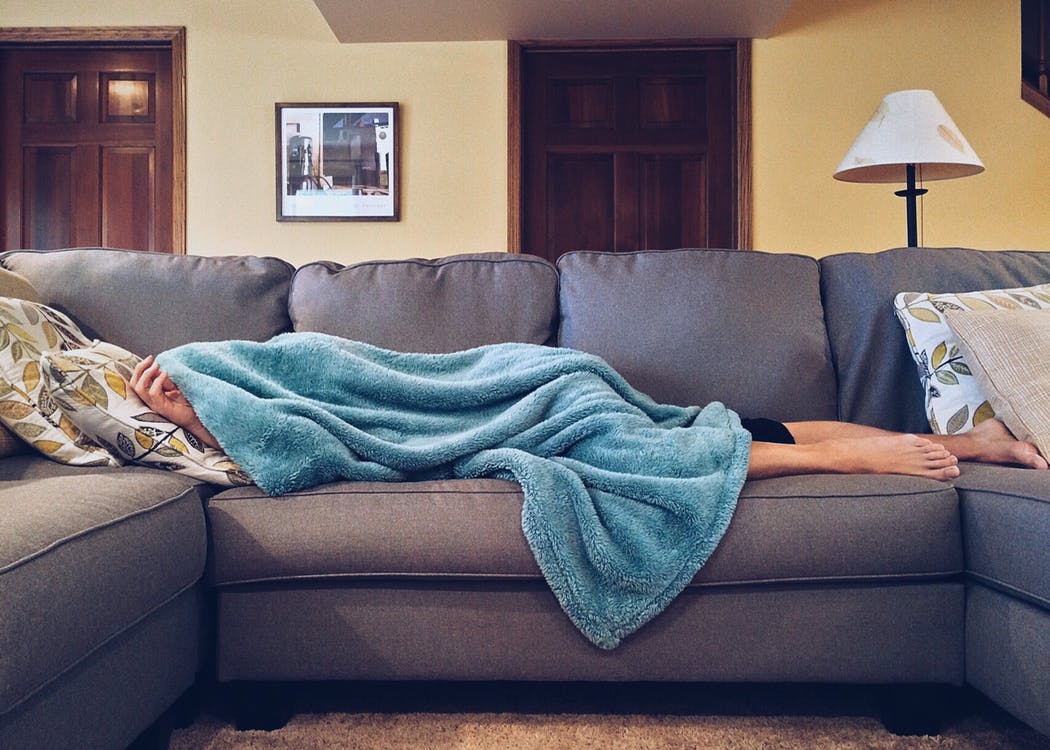Not all kinds of insomnia has its roots in stress but stress could be called a major contributing factor to sleep-loss.
A Survey that was take throughout America to gain insight into sleep habits of adults found that at least 40% of adults report not getting enough sleep.
A majority of adults surveyed that is 3 out of 4 report getting less than 8 hours sleep. 1 in 4 adults sleep for less than 5 hours every night.
Such sleep habits can put them at serious risk of several illnesses, loss of productivity and many mishaps.
But if stress is a contributing factor, reducing the same would bring in much-needed relief.
Stress can trigger insomnia and stress induced insomnia affects our ability to fall asleep and stay that way. This could in turn trigger hyper arousal disturbing sleep patterns and upsetting those.
Discovering the root cause of sleep problems
You may feel that sleeplessness is triggered due to insomnia but there could be other factors at work here.
To understand if stress is the real culprit try to figure out when did your sleep problems begin?
If you always feel let down that could be due to several factors including depression, chronic mood disorder or low serotonin production. This may or may not contribute to sleep-loss and the underlying factors could be something else.
If you began taking a certain kind of medication, some of the understated effects include loss in sleep.
Was it a major assignment at work that kept you awake with many sleepless nights in between? Is the stress from such assignments regularly hampering your sleep?
If stress is the reason for sleep troubles you should try to relax as much as possible.
People tend to worry too much they’re not getting sleep. And that worry fuels further problems— resulting in no sleep at all.
If it’s chronic stress you’re suffering from understanding how it acts on your body and responses the body produces in turn is going to help resolve it.
How does chronic stress act on us?
When our brain perceives a threat it releases a wave of hormones that trigger specific bodily responses.
Release of adrenaline results in the fight or flight response. But since today’s social situations are way different than what we experienced as primitive men where such responses actually helped us survive, today these responses just result in unfulfilled trigger responses.
This causes stress to build up over time. And as the situations that stress us have no end in sight the stress keeps building.
How to solve sleep problems by solving stress?
A healthy bedtime routine can go a long way in stemming sleep problems. I don’t know if you know this- but our body is regulated by a biological clock called circadian rhythm.
- You won’t be able to lengthen the time you get shut-eye with one night. Slowly working towards a longer sleep time by sleeping early and waking up earlier is the way to go. This gradual increase will lengthen your sleep time.
- We don’t notice this but most times a really comfortable pillow can help us with our sleep problems. There are people who like sleeping on the side and others want support on the back and such specialized pillows can make sleep a pleasant experience, help you sleep longer.
- When suffering from insomnia you need to allot a time before you sleep to winding down. During this period it’s better not to read or do anything taxing including watching television. The blue light from digital screens disrupts our sleep cycle and interferes with the night time. We need a space for the alerting mechanisms in our brain to shut down and allow the brain as a whole to hibernate and go to sleep mode. You can listen to some soulful music to accelerate the shutting down, especially ones that seem to have a calming effect on you.
- When sleeping try to avoid uncomfortable positions that can cause neck pain.
- There’s little doubt to the fact that insomnia is an experience no one wants in their life. Insomnia itself is a cause for anxiety. We have trouble falling asleep and we raise a lot of trouble worrying if we’d fall asleep.
- Instead of twisting and turning all night you should take control of your sleep habits and the bedroom. Associate positive emotions and sentiments with the bedroom. So don’t partake in anything that spoils the positivity associated with that room. Consequently move arguments out of that room, don’t eat food in your bedroom, don’t take your job to the bedroom, talking on the phone and other such activities should be avoided.
- An extremely popular actor who’s known all over the world with tons of ad projects and movies under his belt has a policy that once he enters the house, he won’t take any calls from anyone. The house is for family interactions.







